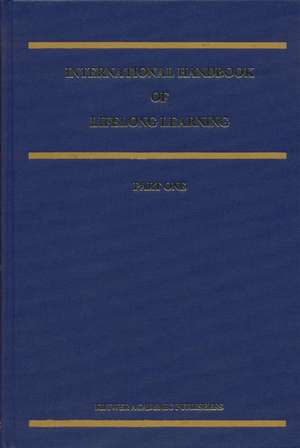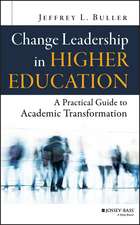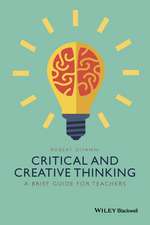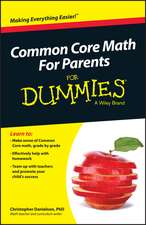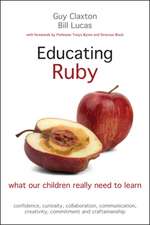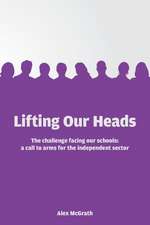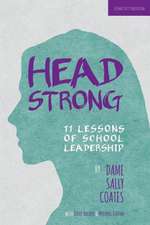International Handbook of Lifelong Learning: Springer International Handbooks of Education, cartea 6
Editat de David N. Aspin, Judith Chapman, Michael Hatton, Yukiko Sawanoen Limba Engleză Hardback – 30 apr 2001
A number of international bodies and agencies have taken cognisance of these transformations and the demands they impose upon societies and communities of the twenty-first century and have developed and articulated policies intended to enable all citizens of the world in the twenty-first century to face these challenges. It is now a declared policy of many governments and international agencies that the only vehicle for such preparation is `education, education, education', and that preparing for the knowledge economy and the learning society of the future has to be a lifelong undertaking, an investment in the future that is not restricted merely to the domain of economic advancement but also to those of social inclusion and personal growth. Realising this, policy-makers across the international arena are grappling with the need to move from systems that emphasise education and training to the radically more unworked construct of lifelong learning. In this volume the editors and authors analyse, criticise, and rework the ideas, principles, and theories underpinning policies and programs of lifelong learning, re-interpreting them in the light of examples of `best practice' found in a range of educating institutions around the world.
We believe that students of educational change and community development will find it useful and helpful to have available in this volumesome of the most up-to-date thinking on the chief concepts, theories, and values of increasing policy interest in lifelong learning, together with a review of some significant examples of the different forms, focuses, and nexuses of thought and practice on this topic. All this enables us to offer some policy recommendations and practical suggestions as to ways forward in the endeavour to make lifelong learning a reality for all.
| Toate formatele și edițiile | Preț | Express |
|---|---|---|
| Paperback (1) | 3044.30 lei 6-8 săpt. | |
| SPRINGER NETHERLANDS – 14 dec 2012 | 3044.30 lei 6-8 săpt. | |
| Hardback (1) | 2613.62 lei 38-44 zile | |
| SPRINGER NETHERLANDS – 30 apr 2001 | 2613.62 lei 38-44 zile |
Din seria Springer International Handbooks of Education
- 18%
 Preț: 2566.01 lei
Preț: 2566.01 lei - 20%
 Preț: 2524.89 lei
Preț: 2524.89 lei - 18%
 Preț: 2495.78 lei
Preț: 2495.78 lei - 18%
 Preț: 2787.65 lei
Preț: 2787.65 lei - 18%
 Preț: 2509.03 lei
Preț: 2509.03 lei - 18%
 Preț: 2528.13 lei
Preț: 2528.13 lei - 24%
 Preț: 3424.63 lei
Preț: 3424.63 lei - 18%
 Preț: 2557.33 lei
Preț: 2557.33 lei - 18%
 Preț: 4736.83 lei
Preț: 4736.83 lei - 18%
 Preț: 2500.50 lei
Preț: 2500.50 lei - 20%
 Preț: 3447.68 lei
Preț: 3447.68 lei - 18%
 Preț: 2562.04 lei
Preț: 2562.04 lei - 18%
 Preț: 1917.28 lei
Preț: 1917.28 lei - 18%
 Preț: 3868.23 lei
Preț: 3868.23 lei - 18%
 Preț: 3082.96 lei
Preț: 3082.96 lei - 18%
 Preț: 3078.36 lei
Preț: 3078.36 lei - 18%
 Preț: 5421.52 lei
Preț: 5421.52 lei - 18%
 Preț: 4707.16 lei
Preț: 4707.16 lei - 18%
 Preț: 5517.65 lei
Preț: 5517.65 lei - 18%
 Preț: 3071.11 lei
Preț: 3071.11 lei - 18%
 Preț: 3089.10 lei
Preț: 3089.10 lei - 24%
 Preț: 2423.35 lei
Preț: 2423.35 lei - 24%
 Preț: 3706.67 lei
Preț: 3706.67 lei - 24%
 Preț: 2659.57 lei
Preț: 2659.57 lei - 24%
 Preț: 2731.14 lei
Preț: 2731.14 lei - 18%
 Preț: 4392.57 lei
Preț: 4392.57 lei - 24%
 Preț: 1695.06 lei
Preț: 1695.06 lei - 24%
 Preț: 2733.86 lei
Preț: 2733.86 lei - 24%
 Preț: 2638.94 lei
Preț: 2638.94 lei - 24%
 Preț: 1629.97 lei
Preț: 1629.97 lei - 24%
 Preț: 1863.18 lei
Preț: 1863.18 lei - 24%
 Preț: 3410.60 lei
Preț: 3410.60 lei - 24%
 Preț: 2649.91 lei
Preț: 2649.91 lei - 24%
 Preț: 2581.81 lei
Preț: 2581.81 lei - 24%
 Preț: 3592.50 lei
Preț: 3592.50 lei - 24%
 Preț: 2698.04 lei
Preț: 2698.04 lei - 24%
 Preț: 2642.96 lei
Preț: 2642.96 lei - 24%
 Preț: 2712.48 lei
Preț: 2712.48 lei - 24%
 Preț: 4135.01 lei
Preț: 4135.01 lei - 24%
 Preț: 3656.36 lei
Preț: 3656.36 lei
Preț: 2613.62 lei
Preț vechi: 3438.97 lei
-24% Nou
Puncte Express: 3920
Preț estimativ în valută:
500.27€ • 543.59$ • 420.50£
500.27€ • 543.59$ • 420.50£
Carte tipărită la comandă
Livrare economică 17-23 aprilie
Preluare comenzi: 021 569.72.76
Specificații
ISBN-13: 9780792368151
ISBN-10: 0792368150
Pagini: 820
Ilustrații: LVIII, 820 p. In 2 volumes, not available separately.
Dimensiuni: 155 x 235 x 56 mm
Greutate: 1.52 kg
Ediția:2001
Editura: SPRINGER NETHERLANDS
Colecția Springer
Seria Springer International Handbooks of Education
Locul publicării:Dordrecht, Netherlands
ISBN-10: 0792368150
Pagini: 820
Ilustrații: LVIII, 820 p. In 2 volumes, not available separately.
Dimensiuni: 155 x 235 x 56 mm
Greutate: 1.52 kg
Ediția:2001
Editura: SPRINGER NETHERLANDS
Colecția Springer
Seria Springer International Handbooks of Education
Locul publicării:Dordrecht, Netherlands
Public țintă
ResearchCuprins
Section 1: Lifelong Learning: Conceptual, Philosophical And Values Issues.- 1.1 Towards a Philosophy of Lifelong Learning.- 1.2 Locating Lifelong Learning and Education in Contemporary Currents of Thought and Culture.- 1.3 Lifelong Learning and Personal Fulfillment.- 1.4 Political Inclusion, Democratic Empowerment and Lifelong Learning.- 1.5 Lifelong Learning and the Contribution of Informal Learning.- 1.6 Lifelong Learning, Changing Economies and the World of Work.- 1.7 From Adult Education to Lifelong Learning.- 1.8 Caring for the Adult Self.- 1.9 Lifelong Learning for a Learning Democracy.- 1.10 Lifelong Education: Some Deweyan Themes.- 1.11 Lifelong Learning in the Postmodem.- 1.12 Lifelong Learning: Small Adjustment or Paradigm Shift?.- Section 2: The Policy Challenge.- 2.1 Lifelong Learning Policies in Low Development Contexts: An African Perspective.- 2.2 Lifelong Learning and Developing Society.- 2.3 Lifelong Learning Policies in Transition Countries.- 2.4 Trends in and Objectives of Adult Higher Education in China.- 2.5 Lifelong Learning and the Leisure-Oriented Society: The Development and Challenges in the Far East.- 2.6 The Swedish Adult Education Initiative: From Recurrent Education to Lifelong Learning.- 2.7 Towards New Lifelong Learning Contracts in Sweden.- 2.8 How to Make Lifelong Learning a Reality: Implications for the Planning of Educational Provision in Australia.- 2.9 Lifelong Learning: a Monitoring Framework and Trends in Participation.- Section 3: Structures and Programs in Lifelong Learning.- 3.1 Schools and the Learning Community: Laying the Basis for Learning Across the Lifespan.- 3.2 Integrity, Completeness and Comprehensiveness of the Learning Environment: Meeting the Basic Learning Needs Of All Throughout Life.- 3.3 Innovative Teachers: Promoting Lifelong Learning for All.- 3.4 Lifelong Learning and Tertiary Education: The Learning University Revisited.- 3.5 Universities as Centres for Lifelong Learning: Opportunities and Threats at the Institutional Level.- 3.6 Islands and Bridges: Lifelong Learning and Complex Systems of Higher Education in Canada.- 3.7 The Impact of the Dearing Report on UK Higher Education.- 3.8 Lifelong Learning and Technical and Further Education.- 3.9 Learning Communities for a Learning Century.- 3.10 Lifelong Learning and the Learning Organization.- Section 4: The Practice: Formal, Informal and Non-formal Initiatives in Learning Across the Lifespan.- 4.1 Community Colleges and Lifelong Learning: Canadian Experiences.- 4.2 From Literacy to Lifelong Learning in Tanzania.- 4.3 Lifelong Learning and the Private Sector.- 4.4 Recent Trends in the Practice of Lifelong Learning and Adult Education in Russia.- 4.5 Community Empowerment Through Lifelong Community Learning in Developing Countries.- 4.6 Lifelong Learning, the Individual and Community Self-help.- 4.7 New Lives for Old: Lifelong Learning Among the Indigenous Peoples of Taiwan and Canada.- 4.8 Promoting Lifelong Learning in Developing Countries: The Institutional Environment.- 4.9 Learning in the Third Age.- Index of Names.- Index of Subjects.
Caracteristici
Includes supplementary material: sn.pub/extras
